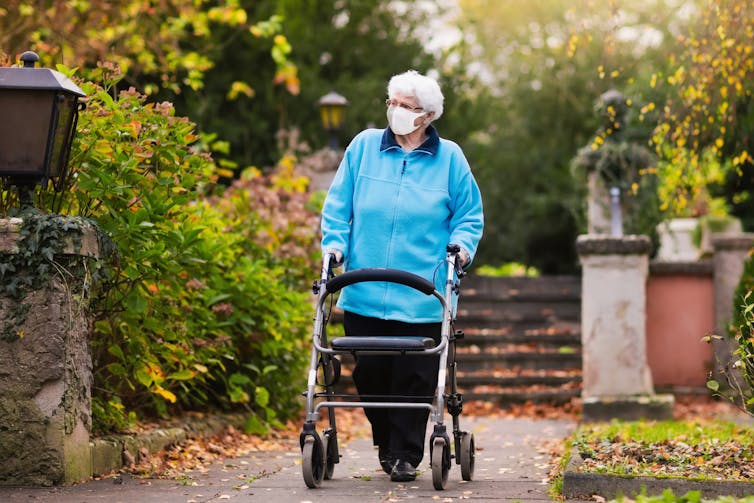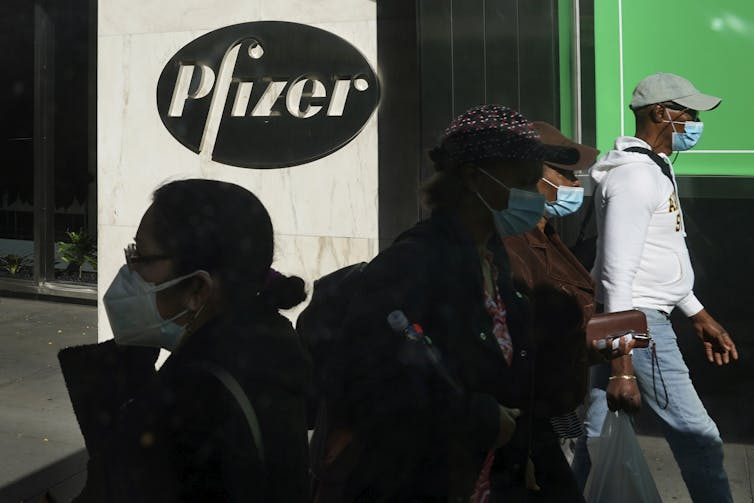Pfizer now has the data it needs to apply for COVID vaccine approval
On Wednesday, Pfizer and BioNTech announced their mRNA vaccine has demonstrated a remarkable 95% efficacy in the “final efficacy analysis” of its phase 3 trial.
The news comes hot on the heels of Pfizer/BioNTech’s interim analysis last week, which pointed to greater than 90% efficacy, and Moderna’s announcement on Monday, also based on an interim analysis, that its vaccine is 94.5% efficacious.
The word “efficacy” describes how well the vaccine offers protection against the target disease during the trial, whereas the word “effectiveness” refers to how well the vaccine protects against the disease in the real world.
This “final efficacy analysis” represents the Pfizer/BioNTech study’s “primary endpoint” — which means there are enough volunteers in the study who have developed COVID-19 to perform a solid evaluation of whether the vaccine is working.
Before the study began, statisticians designing the study identified that 164 people with confirmed COVID-19 would be enough cases to evaluate efficacy (more than 43,000 participants are enrolled in the trial in total).
There were 94 people who had COVID-19 in the interim analysis last week, and they reached 170 people this week — 162 of whom got the placebo and only eight of whom received the vaccine. This is very convincing evidence that this vaccine protects against developing COVID-19 disease.
The fact the primary endpoint was reached so quickly indicates cases are surging in the United States across a lot of the sites where the trial is taking place. Yes, these surging cases are providing more data than anticipated for phase 3 clinical studies; but they also highlight the urgency of the situation in the US.
Read more: 90% efficacy for Pfizer's COVID-19 mRNA vaccine is striking. But we need to wait for the full data
Deeper insights
Pfizer/BioNTech have provided three additional important pieces of information.
First, the vaccine appears to be safe. Volunteers in the study were asked to report different symptoms after receiving the vaccine, and the most common symptoms of note were fatigue and headaches (3.8% of participants experienced more severe fatigue, and 2% headaches).
Second, the vaccine appears to protect against severe disease. The trial saw ten people become severely unwell with COVID-19, only one of whom had received the vaccine. This is a huge relief, because severe COVID-19 puts immense pressure on health-care systems.
Third, they’ve reported the vaccine has 94% efficacy in older people. This is crucial as older adults are bearing the brunt of COVID-19. In Australia, people over 65 make up only 20% of cases but almost 50% of all ICU admissions and more than 95% of deaths from COVID-19.
This efficacy in older people exceeds what many researchers had anticipated, as vaccines often don’t work as well in this group.
 The Pfizer/BioNTech vaccine appears to work equally well in older people.
Shutterstock
The Pfizer/BioNTech vaccine appears to work equally well in older people.
Shutterstock
It’s not a competition
The Moderna vaccine has also shown promising results on those first two measures — safety and protecting against severe disease. We await data on its efficacy in older people.
This rapid-fire succession of press releases may feel like Pfizer/BioNTech and Moderna are competing for the “biggest” efficacy, but competition is not the driving factor.
The primary endpoints are pre-defined by both companies and, when the study reaches them, an interim or final analysis can be performed. Data and safety monitoring boards, independent from the companies, perform these analyses.
Read more: Moderna's COVID vaccine reports 95% efficacy. It means we might have multiple successful vaccines
From a scientific perspective, it’s plausible these two vaccines would have similar efficacy, because they use very similar mRNA vaccine designs. In fact, it’s reassuring they are similar because, in science, we must be able to repeat our results. This gives us confidence the data are correct and that we’ll see similar results outside the lab.
In any scenario, competition is redundant when you consider the size of the problem. Nearly eight billion people around the world urgently need a vaccine. Pfizer/BioNTech and Moderna have each indicated they can make enough vaccines for around 500 million people next year. That still leaves seven billion people needing a vaccine — more than enough of a market for both companies, and more.
Any way you look at it, the real competition is against the virus.
 We’ve heard a lot of good vaccine news lately — but it’s not a competition.
Bebeto Matthews/AP
We’ve heard a lot of good vaccine news lately — but it’s not a competition.
Bebeto Matthews/AP
What’s next?
In the coming days, Pfizer/BioNTech will apply to the US Food and Drug Administration (FDA) for an emergency use approval for their vaccine. Moderna and other vaccine developers likely won’t be far behind once they reach their primary endpoints.
Applications to other regulatory bodies around the world will follow, including the Therapeutic Goods Administration in Australia. A successful emergency use approval with the FDA can accelerate approvals with other bodies.
Read more: How to read results from COVID vaccine trials like a pro
This study will continue for two years to collect “secondary endpoints” — more in-depth details on how the vaccine works and its safety longer term. It will aim to answer three important questions:
longevity: how long the vaccine protects people for
infection: these latest results show that the vaccine prevents people from getting sick and showing symptoms of COVID-19. But we also need to see whether the vaccine protects people from getting infected in the first place
transmission: whether the vaccine reduces the likelihood of an infected but vaccinated person passing the virus on to another person.
It’s fairly straightforward to measure whether a vaccine prevents people from developing disease — you wait for people to report symptoms that could be COVID-19 and then perform a COVID test. Longer timelines and more complicated, laborious lab work are needed to learn about longevity, infection and transmission.
So, there are more insights into the virus and vaccines to come. But these studies are an exciting landmark in vaccine development.
Read more: Why we should prioritise older people when we get a COVID vaccine
Authors: Kylie Quinn, Vice-Chancellor's Research Fellow, School of Health and Biomedical Sciences, RMIT University





